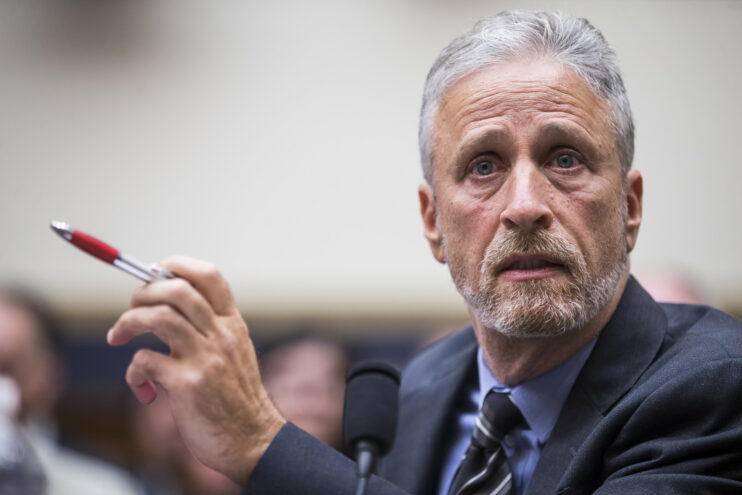
Stewart Says He Was Smeared as Racist Over Lab Leak Theory
John Nolte at Breitbart News writes that former comedian Jon Stewart expressed hypocritical concern over how “absolutes and litmus-testing” limit political debate.
“During his basement-rated podcast The Problem with Jon Stewart, the far-left host was asked about the corrupt federal government finally admitting the truth: that the lab leak theory surrounding the coronavirus was probably right,” says Nolte:
If you recall, in one of his rare breaks from speaking only Deep State-approved talking points, Stewart appeared on Stephen Colbert’s late-night show in June of 2021 to express his belief in the no-brainer lab leak theory. This was a return to form for Stewart. What I mean is that he was funny for the first time in a long time. Why? Because comedy has to be based on at least a nugget of truth to be funny, and laying out the coincidence of a coronavirus appearing just a few blocks from the Wuhan novel respiratory coronavirus lab and not believing it came from that lab is indeed funny.
Here’s what Steward said this week “about the lying, fascist federal government he worships finally telling the truth about the lab leak theory,” Nolte writes:
“The larger problem with all of this is the inability to discuss things that are within the realm of possibility without falling into absolutes and litmus-testing each other for our political allegiances as it arose from that,” Stewart said. “My bigger problem with that was I thought it was a pretty good bit that expressed kind of how I felt, and the two things that came out of it were ‘I’m racist against Asian people’ and ‘How dare I align myself with the alt-right.’”
“Can you imagine how awful it must be to express a reasonable opinion only to find yourself attacked as a racist?” Nolte asks sarcastically.
Jon Stewart is the same guy who smeared Andrew Sullivan as racist because Sullivan dared to argue America is not a white supremacist country. Gee, that certainly strikes me as a fairly good example of “the inability to discuss things that are within the realm of possibility without falling into absolutes and litmus-testing each other for our political allegiances,” no?